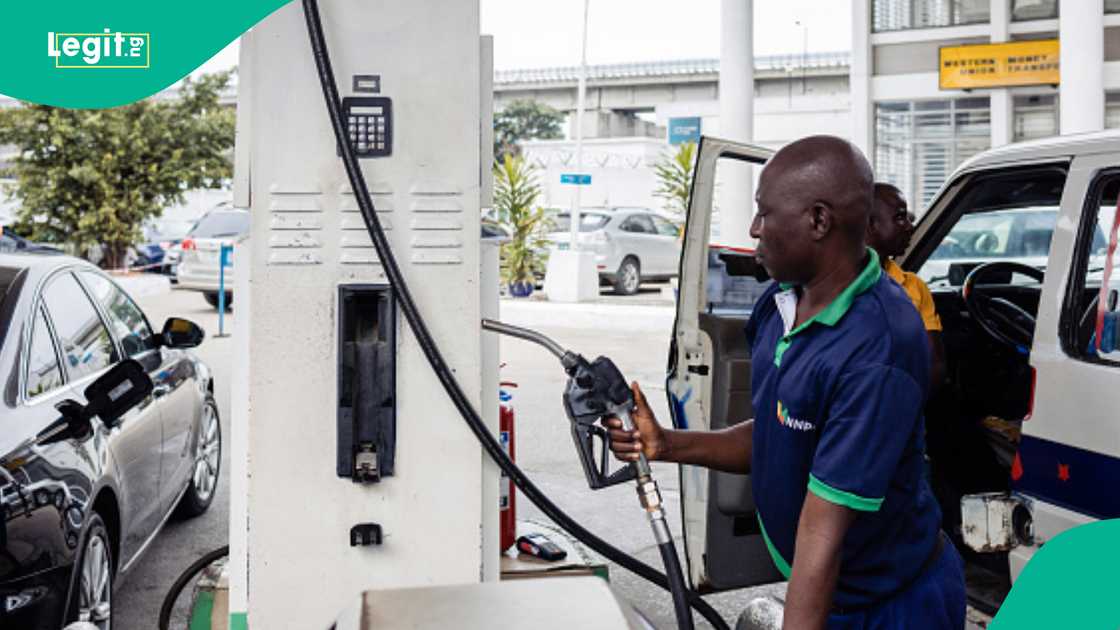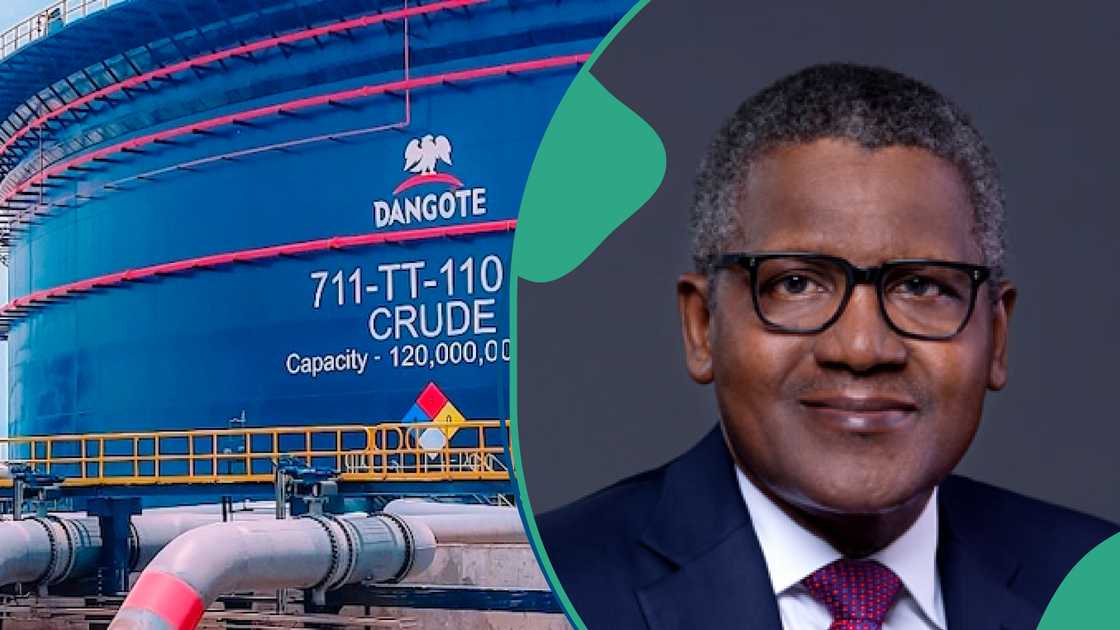Why Fuel Prices Stay High Despite Dangote’s ₦846/Litre Rate Cut
- The petrol price reduction by Dangote Refinery has failed to reflect at filling stations, as marketers use profiteering tactics to exploit consumers
- A recent report has shown how marketers who purchase the product from the refinery inflate the prices at retail stations
- While the refinery currently sells Premium Motor Spirit (PMS) at ₦846 per litre, the anticipated drop in pump prices has failed to materialise
Pascal Oparada, a reporter for Legit.ng, has over ten years of experience covering technology, energy, stocks, investment, and the economy.
Despite hopes that the Dangote Refinery would bring long-awaited relief to Nigerian motorists, fuel prices across major cities remain stubbornly high.
While the refinery currently sells Premium Motor Spirit (PMS) at ₦846 per litre, the anticipated drop in pump prices has failed to materialise, and the reason, analysts say, lies in how marketers are gaming the system.

Source: Getty Images
Marketers turn Dangote’s advantage into a profit machine

Read also
Cooking gas scarcity hits major cities as prices surge over 80%, dealers blame Dangote Refinery
The 650,000-barrel-per-day Dangote Refinery was expected to revolutionise Nigeria’s downstream sector by stabilising supply and reducing dependence on volatile imports.
However, some marketers who lift products directly from the refinery are reportedly exploiting the price gap for personal gain.
In practice, many purchase petrol with a proforma invoice at around ₦820 per litre but resell to independent stations and private depots at ₦846 or higher. That ₦26–₦30 margin per litre, when multiplied across millions of litres traded daily, represents massive profits.
One downstream expert told The Economic Digest:
“If a marketer buys two million litres and adds ₦30 per litre, that’s ₦6 million profit in one cycle — and many can turn that around within 24 hours. It’s a massive cash-out.”
Depot prices reflect growing market distortion
Price checks on Friday revealed a widening disparity between Lagos and other regions.
Lagos depots:
- MENJ – ₦842
- EMADEB – ₦845
- AIPEC – ₦845
- INTEGRATED – ₦845
- AITEO – ₦844
- Warri depots:
- Matrix – ₦860
- AYM Shafa – ₦860
- Calabar depots:
- Evergreen – ₦860
- Matrix – ₦860
- Port Harcourt depots:
- Bulk Strategic – ₦860
- Liquid Bulk – ₦860
While Lagos depots hover just below Dangote’s rate, depots in the South-South and South-East are firmly pegged at ₦860 — signalling emerging regional distortions that could disrupt nationwide distribution.
Ticketing bottlenecks fuel artificial scarcity
Industry insiders blame part of the chaos on how Dangote Refinery allocates supply tickets, documents that allow marketers to lift products.
Reports suggest these tickets are being oversold relative to actual available volume, creating bottlenecks that trigger speculation and hoarding.
This mismatch allows only a few marketers with access to dictate prices, undermining the refinery’s intended role as a stabilising force.
The irony of Dangote’s vision
When Aliko Dangote unveiled the $20 billion refinery, the vision was to break Nigeria’s dependence on imported fuel and lower consumer prices. Instead, limited output, profiteering, and weak regulation have combined to frustrate that goal, at least for now.

Source: UGC
Private depot owners say they are being squeezed out, forced either to match inflated prices or risk losing relevance in a market dominated by a few with refinery access.
What’s next for the downstream sector?
Experts warn that without urgent reforms to ensure supply transparency and enforce pricing discipline, the sector could face another round of instability. Stronger oversight from regulators, they argue, is crucial to ensure the Dangote Refinery delivers on its promise.
Otherwise, Nigeria risks replacing foreign importers with local profiteers — and turning its most celebrated refinery into a new frontier of artificial scarcity.
Source: Legit.ng



